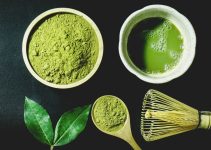Kimchi is a traditional Korean dish made from fermented vegetables that have been salted and fermented for one or two weeks. While this Korean condiment is typically eaten fermented, you can still enjoy it freshly prepared. Cabbage and seasonings like sugar, salt, onions, garlic, ginger and chili peppers are commonly found in this dish.

Kimchi is a low-calorie food that is loaded with nutrients. Even though it has amazing health benefits from the probiotics it contains, the fermentation process itself raises some concerns and risks. Some studies say that the N-nitroso compounds, which are present in foods like Kimchi, may be a contributing factor in Asia’s high rate of stomach cancer, particularly in Korea, according to some research.
Here are a few of the nutritional benefits of eating kimchi everyday:
1. Improved digestion
Fermentation promotes the growth of beneficial bacteria. Probiotics, the “good bacteria” found in yogurt, is one example. Intestinal disorders can be treated with probiotic-rich fermented foods such as kimchi.
2. Promote heart health
Cholesterol and inflammation may be reduced by kimchi consumption, according to some studies. Inflammation is linked to metabolic syndrome, a grouping of conditions that raises the risk of heart disease, stroke, and type 2 diabetes. High cholesterol and chronic inflammation increase the risk of heart disease.
3. Aids in weight loss
Kimchi is low in calories and may aid in weight loss. A study found that Lactobacillus sakei from kimchi may help reduce body fat mass and waist circumference in obese adults. Similarly, an 8-week mouse study found kimchi to be anti-obesity.
Health risks and considerations:
Although kimchi may exhibit many potential health benefits, it also poses several risk factors especially if consumed excessively.
1. Pathogenic bacteria
The bacteria used to ferment kimchi is safe to eat. However, if kimchi is not prepared and stored properly, pathogenic bacteria can grow during fermentation and storage.
In the last decade, kimchi has been linked to E. coli and norovirus outbreaks. Buying kimchi from a reputable retailer and storing it properly can reduce the risk of food poisoning.
2. High sodium content
Several studies have raised concerns about the risks of frequent kimchi consumption, especially given its high salt content. One study in South Korea estimated the average sodium content in 100 g of kimchi at 830 mg, or nearly 4,900 mg per day—more than twice the WHO/FAO recommendation of 2,000 mg. According to the World Cancer Research Fund, salt and salt-preserved foods such as kimchi are linked to an increased risk of stomach cancer. The high sodium content of this dish may also cause concern for those with hypertension.
For a long time, the general consensus among Koreans was that kimchi was too strong and sour for non-Koreans to handle. While it may have an acquired taste, kimchi has become a global phenomenon, earning a reputation as a superfood. However, despite the fact that kimchi is loaded with beneficial nutrients, it is still best to exercise caution when consuming it excessively. Making your own kimchi at home is also a good idea.





